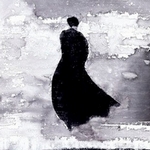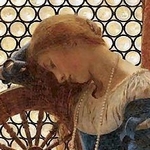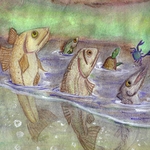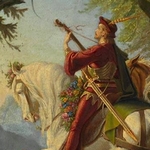- Details
Song of the week: Die Liebe hat gelogen (F. Schubert) - F. Boesch, M. Martineau
 Presenting the song recitals at the Schubertíade Vilabertran is becoming a tradition here on Liederabend. The festival's schedule rules our postings and this year, four out of five recitals will take place during the same week (and what a great week that will be!), so we'll devote only three posts to them. Today's post is about the opening recital, on August 17, with Ilker Arcayürek and Wolfram Rieger; Next weeks’ will be on recitals by Matthias Goerne and Alexander Schmalcz and Sarah Connolly and Malcolm Martineau and the third one will be on recitals by Kate Royal and Christoph Prégardien, both again with Malcolm Martineau. As always, they will be short posts where I'll go over the songs we have already heard and suggest a new one.
Presenting the song recitals at the Schubertíade Vilabertran is becoming a tradition here on Liederabend. The festival's schedule rules our postings and this year, four out of five recitals will take place during the same week (and what a great week that will be!), so we'll devote only three posts to them. Today's post is about the opening recital, on August 17, with Ilker Arcayürek and Wolfram Rieger; Next weeks’ will be on recitals by Matthias Goerne and Alexander Schmalcz and Sarah Connolly and Malcolm Martineau and the third one will be on recitals by Kate Royal and Christoph Prégardien, both again with Malcolm Martineau. As always, they will be short posts where I'll go over the songs we have already heard and suggest a new one.- Details
Cançó de la setmana: Gretchen am Spinnrade (F. Schubert) - J. Norman, P. Moll
 This post written by Christian Camino ends the miniseries "The Master's Degree in Lied of ESMUC visits us", written by the students of the Master's Degree as a work for the module "Genre Literature. Repertory of the German lied", given by Viviana Salisi. Christian, pianist, presents his lied, Gretchen am Spinnrade, from a more technical point of view than usual, but I find that to follow his explanation with the score (you can find it here) is an interesting exercise. In addition to the four posts published during the last few weeks, you will find in the series's page a 5th post, a kind of bonus track, the post by Ana Belén Ayala, who tells us about Mahler's Des Antonius von Padua Fischpredigt. Thank you very much, Christian and Ana Belén!
This post written by Christian Camino ends the miniseries "The Master's Degree in Lied of ESMUC visits us", written by the students of the Master's Degree as a work for the module "Genre Literature. Repertory of the German lied", given by Viviana Salisi. Christian, pianist, presents his lied, Gretchen am Spinnrade, from a more technical point of view than usual, but I find that to follow his explanation with the score (you can find it here) is an interesting exercise. In addition to the four posts published during the last few weeks, you will find in the series's page a 5th post, a kind of bonus track, the post by Ana Belén Ayala, who tells us about Mahler's Des Antonius von Padua Fischpredigt. Thank you very much, Christian and Ana Belén!- Details
Song of the week: Des Antonius von Padua Fischpredigt (G. Mahler) - I. Bostridge, D. Smith (dir.) / Hermann Prey, M. Krist
 In the context of the work done by the students of the Master in Lied of the ESMUC for its module Genre Literature. Repertoire of the German Lied, Ana Belén Ayala presents a Mahler's Lied, Des Antonius von Padua Fischpredigt. We will listen to it in the version with piano accompaniment and the orchestral version; the performers are Hermann Prey and Michael Krist and Ian Bostridge and the National Symphony Orchestra of RAI, directed by Daniel Smith. Thank you very much, Ana Belén!
In the context of the work done by the students of the Master in Lied of the ESMUC for its module Genre Literature. Repertoire of the German Lied, Ana Belén Ayala presents a Mahler's Lied, Des Antonius von Padua Fischpredigt. We will listen to it in the version with piano accompaniment and the orchestral version; the performers are Hermann Prey and Michael Krist and Ian Bostridge and the National Symphony Orchestra of RAI, directed by Daniel Smith. Thank you very much, Ana Belén!- Details
Song of the week: Waldesgespräch (R. Schumann) - D. Fischer-Dieskau, G. Moore
 Third post of the series written by the students of the Master in Lied of the ESMUC, their work for the module Genre Literature. Repertoire of the German Lied, given by pianist Viviana Salisi. For this week, Susanna Puig has chosen another great Lied, Waldesgespräch, that we'll hear performed by Dietrich Fischer-Dieskau and Gerald Moore. Thank you very much, Susanna!
Third post of the series written by the students of the Master in Lied of the ESMUC, their work for the module Genre Literature. Repertoire of the German Lied, given by pianist Viviana Salisi. For this week, Susanna Puig has chosen another great Lied, Waldesgespräch, that we'll hear performed by Dietrich Fischer-Dieskau and Gerald Moore. Thank you very much, Susanna!Waldesgespräch belongs to the cycle called Liederkreis, composed by R. A. Schumann (1840) about poems from J. K. B. von Eichendorff and based on the legendary figure of Lorelei. Lorelei is both the name of a cliff located along the river Rhine in Germany and also a German legend from the Romanticism mentioned [...]
- Details
Song of the week: Mein schöner Stern (R. Schumann) - D. Fischer-Dieskau, J. Demus
 Second post of the series written by the students of the Master in Lied of the ESMUC, their work for the module Genre Literature. Repertoire of the German Lied, and it is given by pianist Viviana Salisi. We started the series last week with a gorgeous song chosen by Elena Mateo and this week we'll listen to a gorgeous song too, chosen by Guillem Martí.
Second post of the series written by the students of the Master in Lied of the ESMUC, their work for the module Genre Literature. Repertoire of the German Lied, and it is given by pianist Viviana Salisi. We started the series last week with a gorgeous song chosen by Elena Mateo and this week we'll listen to a gorgeous song too, chosen by Guillem Martí.Mein schöner Stern, op. 101 n. 4, by Robert Schumann, is part of the Minnespiel op.101, a cycle based on poems by Friedrich Rückert that, like Spanisches Liederspiel, combines Lieder for vocal soloists with duets and two quartets. Two of the texts had previously been used by Schumann for the cycle Zwölf Gedichte by Friedrich Rückerts Liebesfrühling[...]












